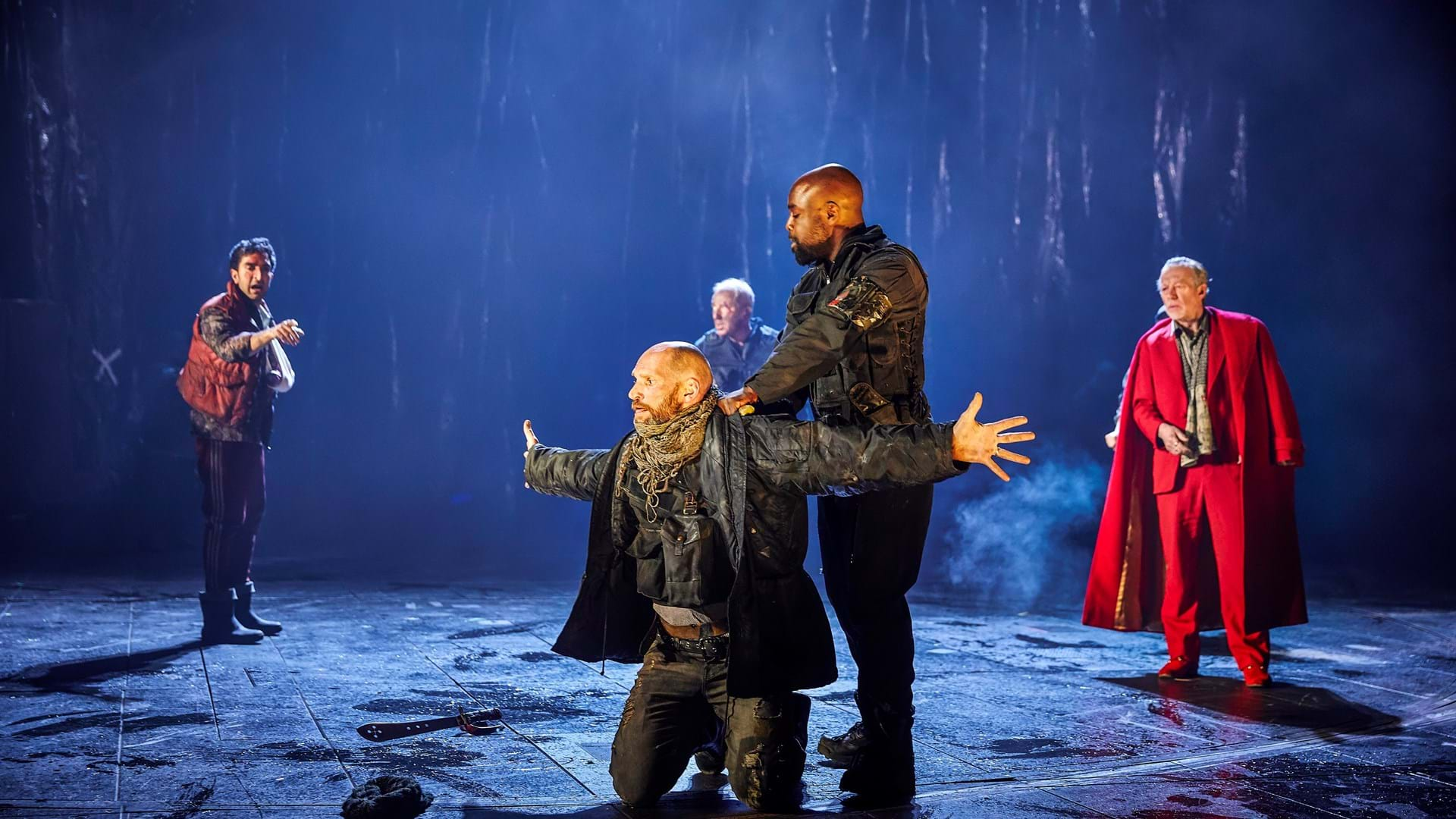Director Rufus Norris has stated that his main objectives with The National Theatre’s 2018 production of Macbeth are to fire the imagination of a young audience and imbue the play with resonance in terms of present-day political anxieties. Needless to say, the timeless genius of the Bard means that the text alone already has this largely covered; nevertheless, Norris’ attempt to modernise and innovate via the use of a present day, post-civil war setting is certainly novel.
This National Theatre incarnation has a grimy, anarchic dystopia aesthetic, like a punky, Scottish Mad Max. This setting, with its capacity for paranoia, claustrophobia and sharpened survival instincts, has such enormous potential to enrich and underline the play’s central themes, which could have been exploited more fully. The implication of recent catastrophic social unrest, if utilised effectively, could also have given extra coherence and context to the play’s interest in the supernatural and its allusions to witchcraft. Sadly, these elements are not sufficiently explored or reflected in the actors’ performances and the unfortunate result is that the contemporary setting feels like something of a hollow gimmick.
Michael Nardone’s characterisation of the play’s murderously ambitious, tortured protagonist is understated to such an extent that his performance, at times, borders on uninspiring. In the play’s early scenes, he embodies typically Scottish, masculine emotional reserve and his conservative military machismo is conveyed effectively through body language. His muted delivery at this stage renders his later psychological unravelling and emotional outbursts less convincing than they are required to be for the performance to achieve the full poignancy offered by the text.
Kirsty Besterman is commanding as Lady Macbeth, but is restricted by sometimes unconvincing chemistry between herself and Nardone. Patrick Robinson is compelling and charismatic as Banquo, and much-needed comic relief is delivered expertly by Deka Walmsley as the Geordie-accented Porter. Malcolm, played by Joseph Brown, is given a palpable sense of vulnerability, which provides a fitting counterpoint to Macbeth and creates balance in the otherwise seethingly macho environment of the play.
Any tension lost through the performance’s occasional lack of momentum is supported by the play’s atmospheric soundscape. Searing, ominous, nebulously industrial sounds are used throughout and are effective in creating a convincing sense of unease, disorientation and increasing horror.
While a few missed opportunities prevent this version of ‘the Scottish play’ from achieving greatness, they have not divested the drama of its inherent visceral power. The quirky setting, although not used to full advantage, will no doubt serve to engage the younger audiences Norris hopes to inspire.
